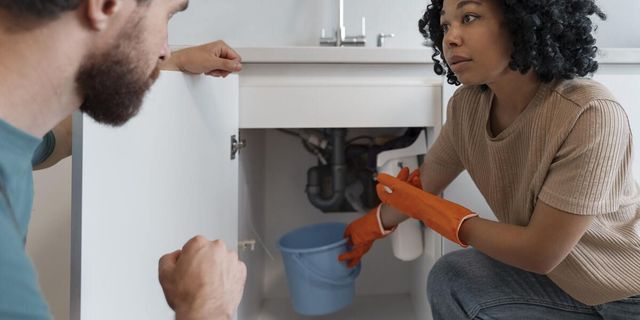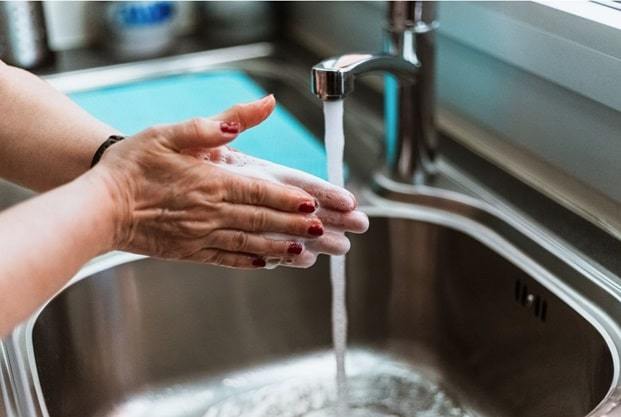Handling Emergency Plumbing Problems: Immediate Fixes Until Specialist Help Arrives
Handling Emergency Plumbing Problems: Immediate Fixes Until Specialist Help Arrives
Blog Article
We have stumbled on the article relating to Plumbing Emergencies: Tips on What To Do Before listed below on the internet and reckoned it made good sense to quickly share it with you on this site.

Plumbing emergencies can strike at any time, triggering anxiety and prospective damage to your home. Whether it's a burst pipe, a blocked drainpipe, or a leaking tap, understanding exactly how to handle the circumstance up until an expert plumbing shows up can save you from further issues. This write-up provides important emergency plumbing ideas to assist you alleviate damages and gain back control throughout a pipes dilemma.
Shut off the Water System
The very first step in any kind of pipes emergency situation is to shut down the water. For local concerns, such as a dripping tap or commode, switch off the shutoff near the component. When it comes to a significant leak or burst pipe, locate your home's primary water shut-off shutoff and turn it off right away. Understanding the place of these valves in advance can save important time during an emergency.
Address Small Leakages with Momentary Solutions
Small leaks can swiftly come to be significant issues if left uncontrolled. Use these short-term repairs till specialist help shows up:
While these repairs aren't permanent, they can help decrease water loss and damage.
Unclog Drains Securely
A stopped up drain can be a frustrating and unpleasant problem. Here's just how to tackle it:
If these techniques do not work, prevent making use of extreme pressure, as it might intensify the clog.
Manage Overflowing Toilets
An overflowing commode can cause instant mayhem. Below's what you ought to do:
Turn off Your Hot Water Heater
In particular emergency situations, such as a burst pipe, it's a good idea to turn off your hot water heater. This protects against getting too hot or damages to the unit when water quits flowing. Turn off the power supply to the hot water heater (electrical or gas) and allow it cool down to prevent possible threats.
Temporarily Stop a Ruptured Pipeline
A burst pipe can result in substantial water damages in minutes. To reduce the problem:
Call a professional plumbing right away to attend to the issue completely.
Manage Frozen Pipes Thoroughly
In colder climates, frozen pipes are a common emergency. If you think a frozen pipe:
Stop Further Damage
Taking fast action to reduce damages can conserve you time and money in the long run. Below's exactly how:
. Have an Emergency Pipes Package
Prepare a basic plumbing emergency package to deal with small issues properly. Your kit must include:
Having these tools accessible can make a considerable difference in your capability to manage emergency situations.
Know When to Call a Professional.
While quick fixes can assist momentarily, certain pipes problems require prompt expert attention. Call a plumbing professional if:.
Immediately contacting a specialist makes sure the issue is resolved properly and prevents more problems.
Conclusion.
Pipes emergencies can be frustrating, however with the appropriate understanding and tools, you can take care of the scenario efficiently until aid shows up. By shutting off the water supply, resolving small leakages, and utilizing short-term fixes, you can minimize damages and maintain your home safe. Keep in mind, these tips are temporary remedies; constantly consult a qualified plumbing technician to manage the root cause of the trouble. Preparation and quick reasoning are your finest allies in any pipes emergency situation.
Expert Tips for Emergency Plumbing Repairs
Plumbing emergencies can be incredibly stressful and inconvenient. Whether it’s a burst pipe, a clogged drain, or a leaky faucet, these common plumbing emergencies need immediate attention to prevent further damage to your home. But before you panic, it’s important to understand the basics of plumbing repairs and the steps you can take to address these emergencies. In this article, we will share some expert tips to help you navigate through these situations and minimize potential water damage.
Identifying Common Plumbing Emergencies
Leaky pipes and faucets Clogged drains and toilets Burst pipes Low water pressure Water heater problems Essential Tools for Plumbing Repairs
Plunger: Useful for unclogging toilets and drains Adjustable wrench: Needed for tightening or loosening nuts and bolts Pipe wrench: Ideal for gripping and turning pipes Tape measure: Necessary for accurate pipe measurements Plumber’s tape: Helps create watertight seals Understanding Emergency Plumbing Services
Emergency plumbing services are designed to provide immediate assistance for unexpected plumbing issues that can cause significant damage to your home, business, or health. These services are typically available 24/7 and are staffed by experienced plumbers who can quickly diagnose and repair a wide range of plumbing problems.
When a plumbing emergency strikes, time is of the essence. Whether it’s a burst pipe flooding your basement or a gas leak posing a serious risk, emergency plumbing services ensure that help is just a phone call away. These professionals are equipped with the tools and expertise to handle any situation, minimizing damage and restoring your plumbing system to proper working order.
What Constitutes a Plumbing Emergency?
Burst pipes or water supply lines: These can cause extensive water damage and need immediate repair to prevent flooding. Gas leaks or suspected gas leaks: Gas leaks are extremely dangerous and require prompt attention to avoid potential explosions or health hazards. Sewer backups or overflows: These can lead to unsanitary conditions and significant property damage. Clogged drains or toilets causing water to overflow: Overflowing water can damage floors, walls, and other structures. Leaks or water damage causing structural damage: Persistent leaks can weaken the structural integrity of your home or business. No hot water or heating: A lack of hot water can be more than an inconvenience, especially in colder months. Common Causes of Plumbing Emergencies
Aging or corroded pipes: Over time, pipes can deteriorate, leading to leaks or bursts. Improperly installed or maintained plumbing fixtures: Faulty installations or lack of maintenance can result in unexpected failures. Tree roots or other debris infiltrating your sewer line: Roots can grow into pipes, causing blockages and backups. Frozen pipes or water supply lines: In colder climates, pipes can freeze and burst, leading to significant water damage. High water pressure or sudden changes in water pressure: Excessive pressure can strain pipes and fixtures, causing them to fail. Natural disasters such as floods or earthquakes: These events can disrupt your plumbing system and cause severe damage. Steps to Minimize Water Damage
Locate the water shut-off valve: Knowing where the valve is can help you quickly cut off the water supply to the affected area. Turn off the water heater: If there’s a risk of water coming into contact with the heating element, make sure to turn off the water heater to avoid potential accidents. Open faucets and drain pipes: By opening faucets and drain pipes, you can relieve pressure and empty any standing water. Collect and contain water: Use towels, buckets, or bins to collect water and prevent it from spreading to other areas of your home. https://leecountyplumbingandwellservice.com/expert-tips-for-emergency-plumbing-repairs/

I ran across that content about What to Do During a Plumbing Emergency while looking around the search engines. If you liked our blog posting kindly don't forget to pass it around. I recognize the value of your readership.
Prices & Booking Report this page